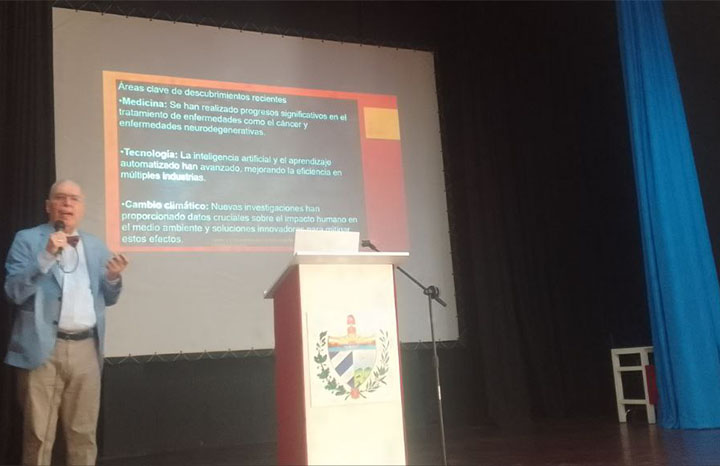
HAVANA, Cuba, Apr 15 (ACN) The human and intellectual formation of contemporary physicians in Cuba took center stage at the XI Meeting on Bioethics in Higher Education, dedicated to the use of biotechnology and artificial intelligence and their impact on everyday life.
Speaking to more than 100 participants, René Salvador Zamora Marín, president of the Cuban National Bioethics Committee, said that the country’s health professionals need to be philosophers, engineers, and knowledgeable about pedagogy to better understand social problems and have an ethical vocation in order to contribute to solve them.
“Our universities must keep developing and deploying specialized medical knowledge for the benefit of humanity in a responsible manner and in line with society’s current needs”, he remarked.
The specialist stressed that our professors should be committed to the all-encompassing formation of the student's personality, with emphasis on their independence, creativity, self-learning and self-assessment skills, as befits health care’s needs and bio-psychosocial approach to achieve health for all through the country’s Primary Care program.
“Making their students understand that they must shift the health-disease process from the ill to the healthy and from the individual to the collective, as well as the importance of multidisciplinary teamwork, community work, and the family’s engagement in all things related to the human dimension of the profession is essential today in our schools”, he pointed out.
The event’s program also features debates about the ethical applications of neurotechnology and artificial intelligence and their link to human creativity and the 5th Workshop Retos éticos de la tercera edad: las personas mayores y la informatización de la vida cotidiana (Ethical challenges in old age: senior citizens and the informatization of everyday life).
Sidebar

 Agencia Cubana de Noticias
Líder en información nacional
Agencia Cubana de Noticias
Líder en información nacional








Nos reservamos el derecho de no publicar los comentario que incumplan con las normas de este sitio